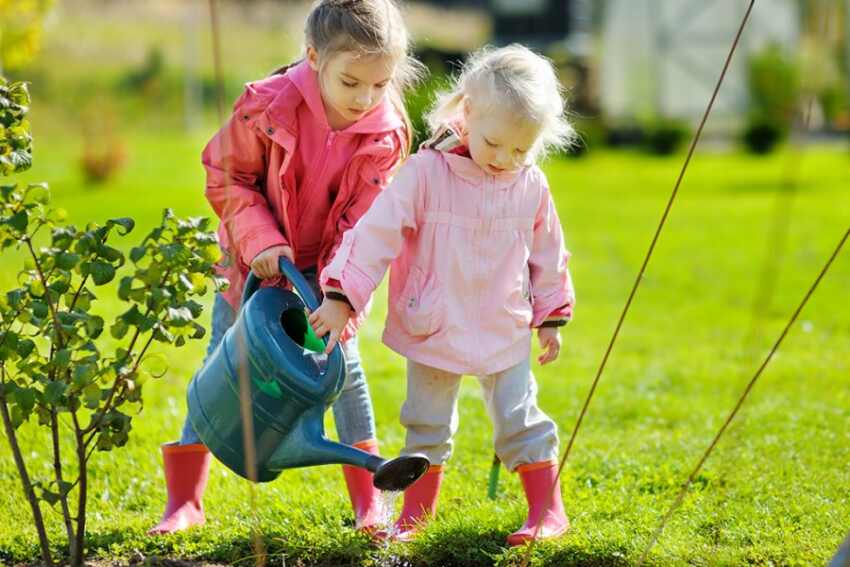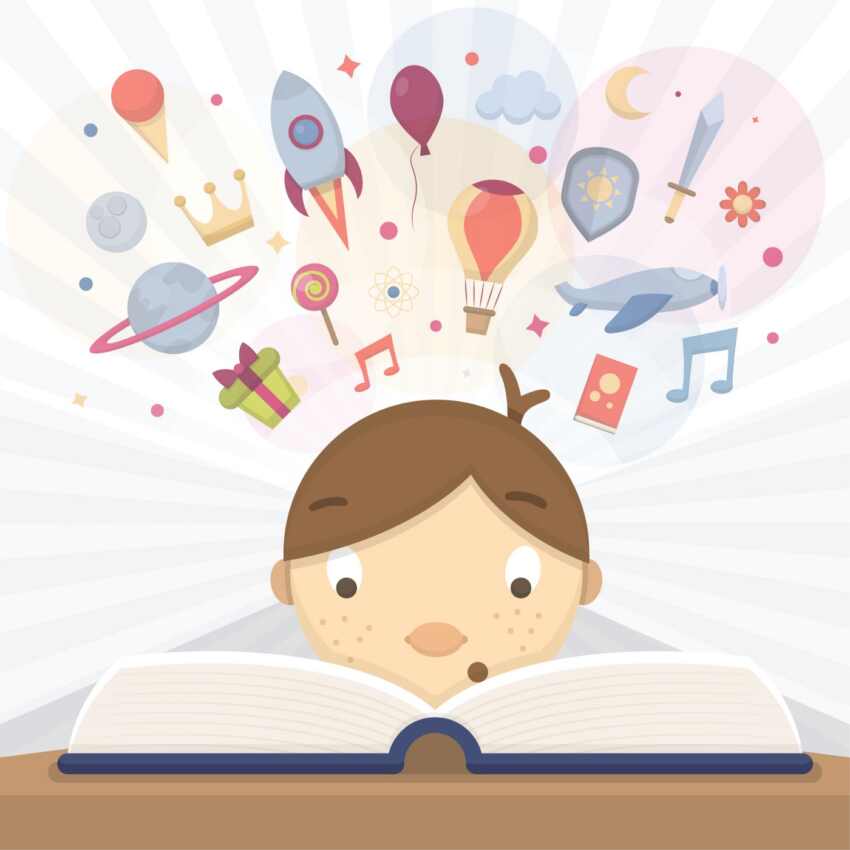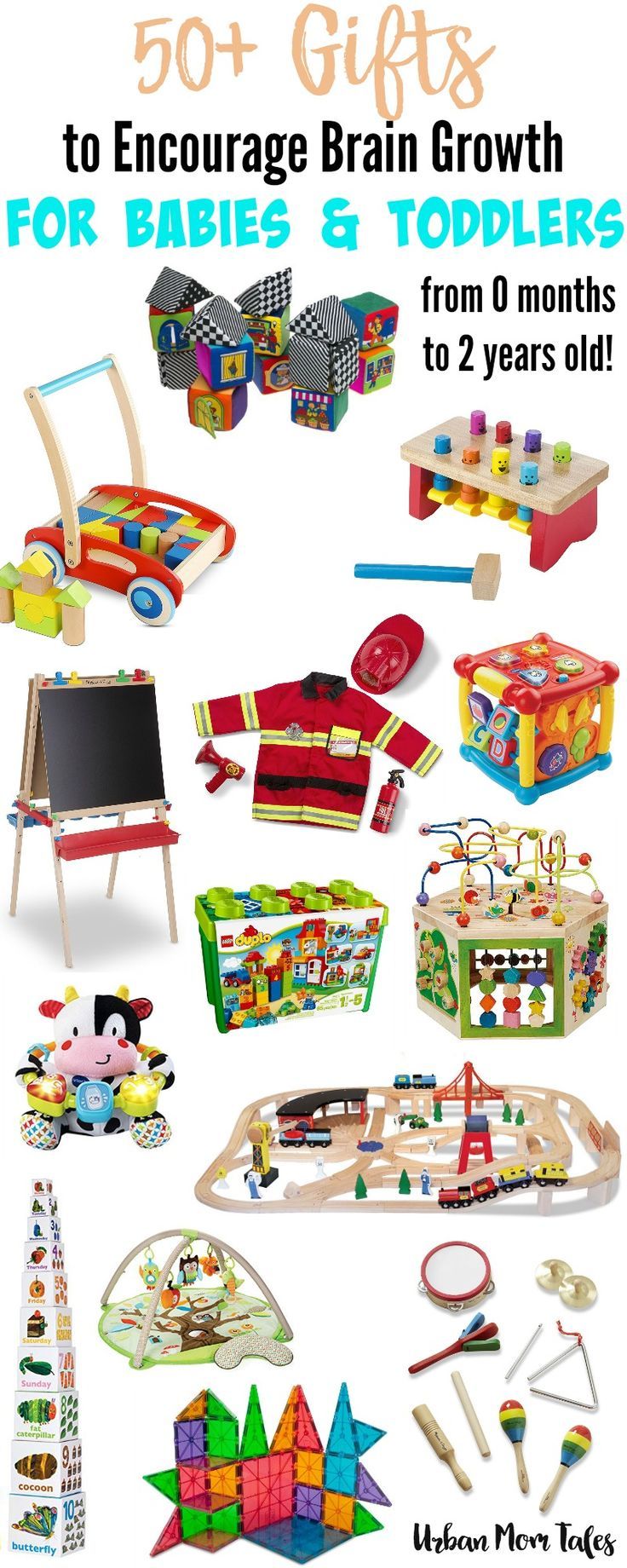COGNITIVE DEVELOPMENT
Cognitive development means how children think, explore and figure things out. It is the development of knowledge, skills, problem solving and dispositions, which help children to think about and understand the world around them. Brain development is part of cognitive development. Research shows that children who can distinguish sounds at six months of age are better at acquiring the skills for learning to read at four and five years of age
Children grow and develop rapidly in their first five years across the four main areas of development. These areas are motor skill development (physical), language skill development and development of communication, cognitive and social/emotional development.

Children are like little sponges, and there is constant learning during this growth stage. They are always watching, observing, exploring, and questioning!

What is the importance of cognitive development in education?
Cognitive skills allow children to understand the relationships between ideas, grasp the process of cause and effect, and improve their analytical skills. All in all, cognitive skill development not only can benefit your child in the classroom but outside of class as well.

Role of education in the cognitive and psychological development of Children – Education is one of the vital pillars of life. The cognitive development, psychological, and personality aspects, largely feed on the quality and versatility of the kind of education a person receives from the start. It gives a strategic and valuable insight to shape the cognitive and overall development that kicks start since early school education. The skills and learning incorporated in children through education, academics, and various other procedures can be worthy of shaping up a human into a fully developed human being. Hence, selecting the right school for your children’s education, since from the early childhood stage, is essential.
The early childhood stage is defined as the most crucial time of a child. UNESCO refers to this as a seamless transition from prenatal care to primary school. This concept is rived from European countries. This age group gets the fastest cognitive development. The nervous system consists of neurons, brain cells, and developments happen rapidly. The ability to comprehend, perceive and reciprocate starts from this phase. Education at this level lets the children learn with knowledge diversity. It helps them grow self-esteem, confidence, insight to set perspective and gradually develops the personality. It is more of learning mainstream academics instead; it teaches through insight and imagination. Education at this level develops cognitive psychological development.

Critical Cognitive Development that education helps to develop
The education system at the school level is divided mainly into three classes:
-
Early childhood – 0-8 years of age is considered the early childhood education stage.
-
Middle childhood – 8 -12 years of age are considered for the middle childhood education stage.
-
Adolescence – 12 – 18 years of age is considered for the adolescence childhood stage of education.
Education helps to develop the eight most important cognitive skills. Those areas are as follows:
-
Sustained Attention– It develops the skill of perceiving any matter through listening, thinking, and looking at it. Overall the process can be defined as attention. It is the basic ability to comprehend any matter.
-
Response Inhibition – This is a process of inhibiting the responses of impulses of distraction. Some individuals can figure out the priority and inhibit the impulse of distraction, whereas some others get carried away with it.
-
Speed of processing information– It is the process of receiving incoming information and enacting it within a specific frame of time. This is a vital part of the intelligent quotient. Those with attention problems cannot achieve a high degree of this information processing.
-
Cognitive Flexibility– It is a multi-dimensional ability to get success. It let the brain mold to the thought procedure by changing the perspective of what you think, how you think, and how you sustain attention.
-
Multitasking simultaneous attention – It is the ability to multitask and distribute the attention between many tasks at a time. It is a summed-up form of sustained attention, response inhibition, and speed up the information process with strategic planning.
-
Memory– It refers to the ability to remember, perceive information, and perform the given task. Its further extended form is working memory, where we keep things like a sketch pad.
-
Category Formation– It is a systematic procedure to arrange information, concepts, and skills into specific categories to form a cognitive basis of application, analyze, and evaluate the acquired knowledge or concept systematically. The category is the base of language and formulation.
-
Pattern recognition – Inductive thinking or pattern recognition is an extraordinary capability of the brain to find out logic and accordingly make classification patterns. This helps to find out what is going to happen next. It is the basis of all inquiry and scientific resolution.
To Encourage Your Preschoolers’ Cognitive Development, Follow these activities:-
Whether your child attends preschool or plays at home, language skills increase, gross motor coordination improves, social skills progress, and awareness of their surroundings broadens during their preparation for kindergarten.
-
Allow for mistakes. Young children are bound to make mistakes; that is how they learn. Naturally, we want to fix things; however, it is vital to give them space to make mistakes.
-
Inspire them to try new things or find different solutions.
-
Encourage decision-making by allowing your preschooler to make choices, for example, “what they want to eat,” “what to wear,” or “what they want to play.” “Which one do you want?” like that.
-
Support problem-solving by giving them the time to figure things out and not rushing in with a solution.
-
Talk with your preschooler to build their language skills. Ask questions during play, like “What is it?” Where is it?” Include yes, or no questions, let them talk about an object, etc.
-
support their interest and respect them to expand their growth and development.Other activities:-

- Run, jump,
- Ride a tricycle.
- Socialize and play with others.
- Swing on the swings.
- Tell a story using their imagination.
- Walk along a circular or straight line.
- Walk down and up the stairs.
- Write or copy numbers, letters, or shapes.
- Cut paper with scissors.
- Dance and sing a song.
- Hop or they may skip.
- Kick or throw a ball.
- Dress and undress.
- Buttoning or unbuttoning
- Sorting things such as cereals and grains
- Pouring water from one glass into another
- Gardening
- Removing weeds
- planting seeds
- Put on shoes
- Holding books, boxes, lunch boxes
- Puzzles and matching things
- Arranging beads according to their size.
- Closing and opening boxes
- washing hands
- Brushing
- Colouring
- Folding papers
- folding clothes
- Hair combing …… so on. You can include more activities that help children’s cognitive or thinking power.
Vasantha. K.P





